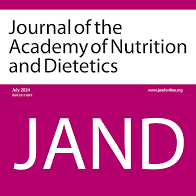Registered dietitian nutritionists in substance use disorder treatment centers
By David A. Wiss, Maria Schellenberger, & Michael L. Prelip

The Academy of Nutrition and Dietetics (formerly the American Dietetic Association) published a position paper in 1990 supporting the need for nutrition intervention in treatment and recovery from addiction. Registered dietitian nutritionists (RDNs) were described as essential members of the treatment team and urged to take “aggressive action to ensure involvement in treatment and recovery programs.” Unfortunately, the position paper had little impact, was not renewed, and limited progress has occurred in incorporating RDNs into drug rehabilitation programs despite the continued growth of substance abuse.
Subscribe for weekly insights and research exploring the link between nutrition & mental health.
Addiction is a major public health problem worldwide. The most substantial health burden arising from drug addiction lies not in the direct effects of intoxication, but in the secondary effects on physical health. Addiction treatment offers a unique opportunity to reduce the health care burden associated with nutrition-related chronic disease and to improve recovery outcomes. Life skills development with grocery shopping and cooking classes appears to be a promising avenue toward increasing self-efficacy and nutrition behaviors.
Psychoeducation by registered dietitian nutritionists trained in substance use disorders and eating disorders should be routine in intensive outpatient treatment. Nutrition therapy protocols for specific substances should be considered when tailoring individualized dietary interventions.
Registered dietitian nutritionists are qualified to provide nutrition education and counseling in substance use disorder treatment facilities. Treatment outcomes may benefit from adding nutrition services; however, more data are needed. With additional data, improving the recovery process amidst the current opiate crisis may be possible.